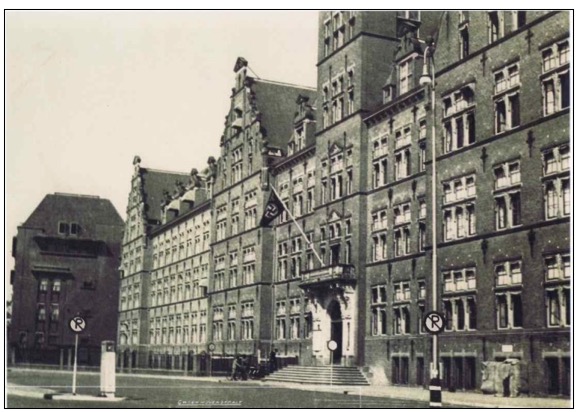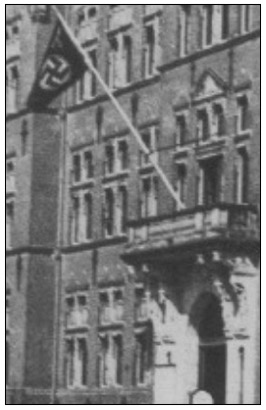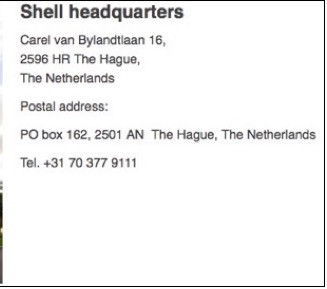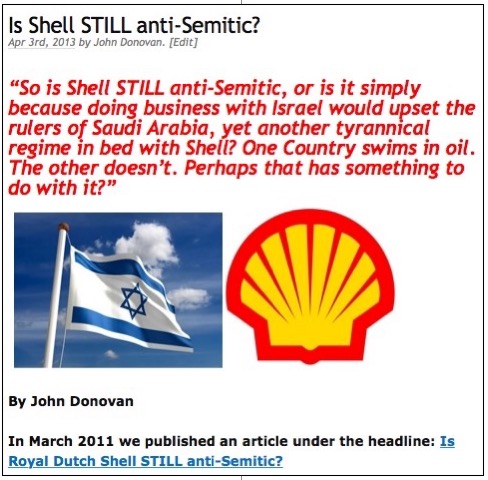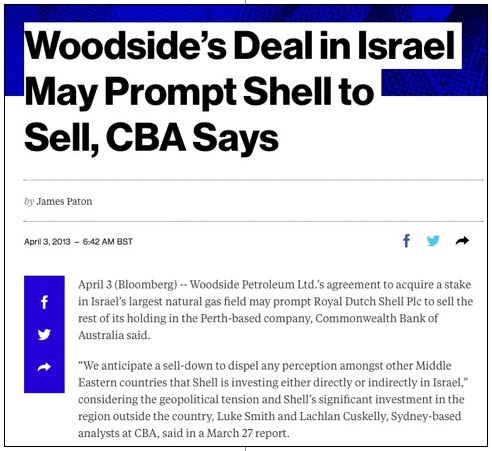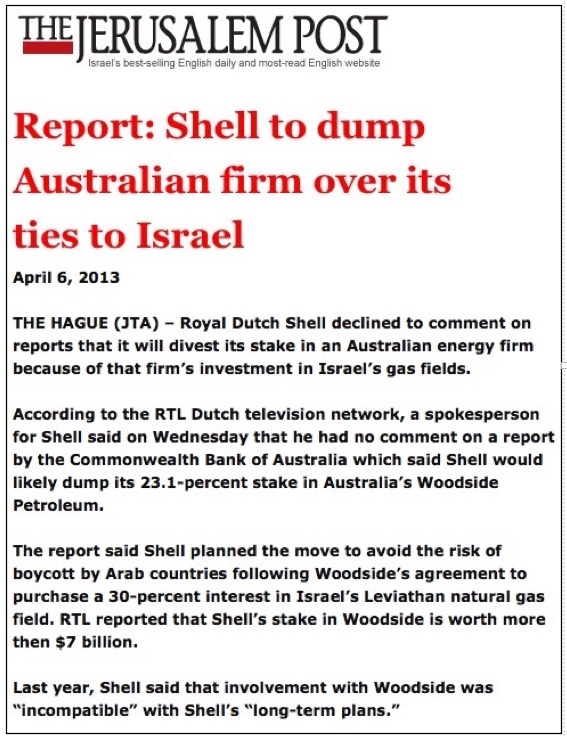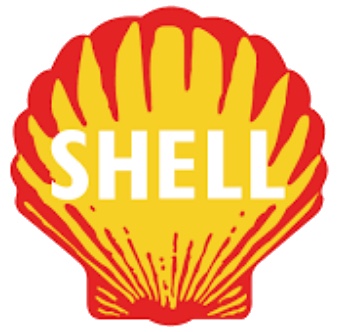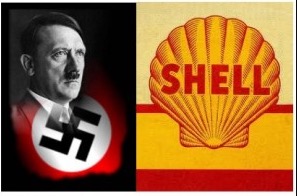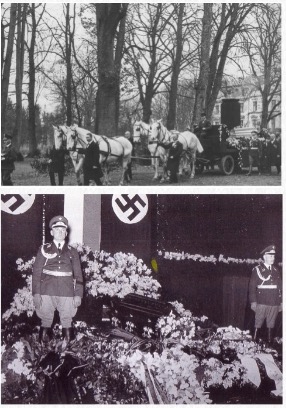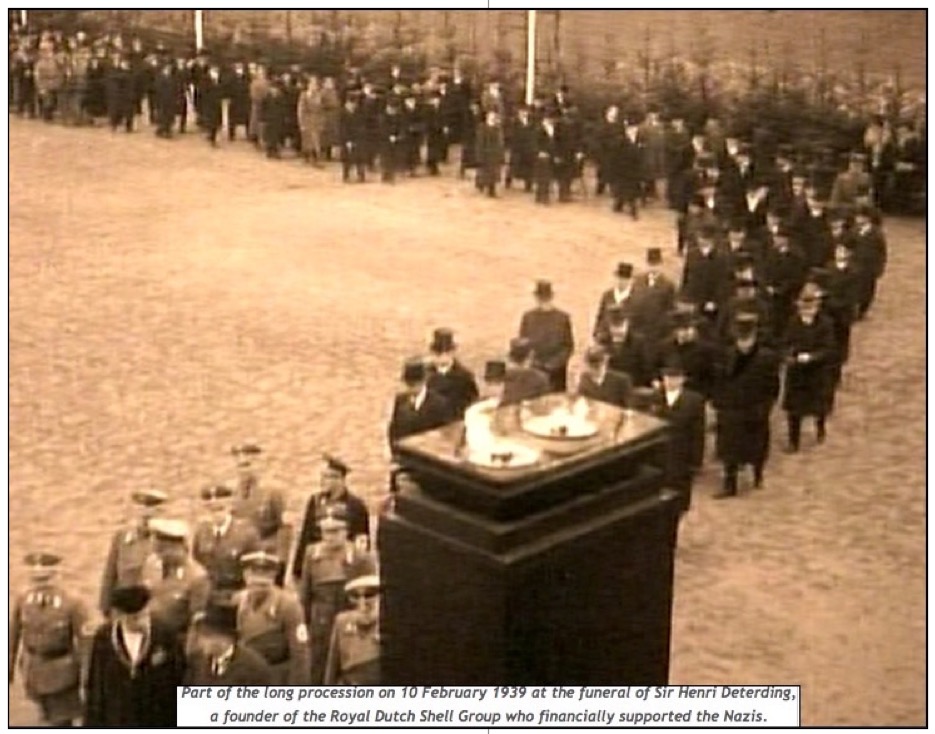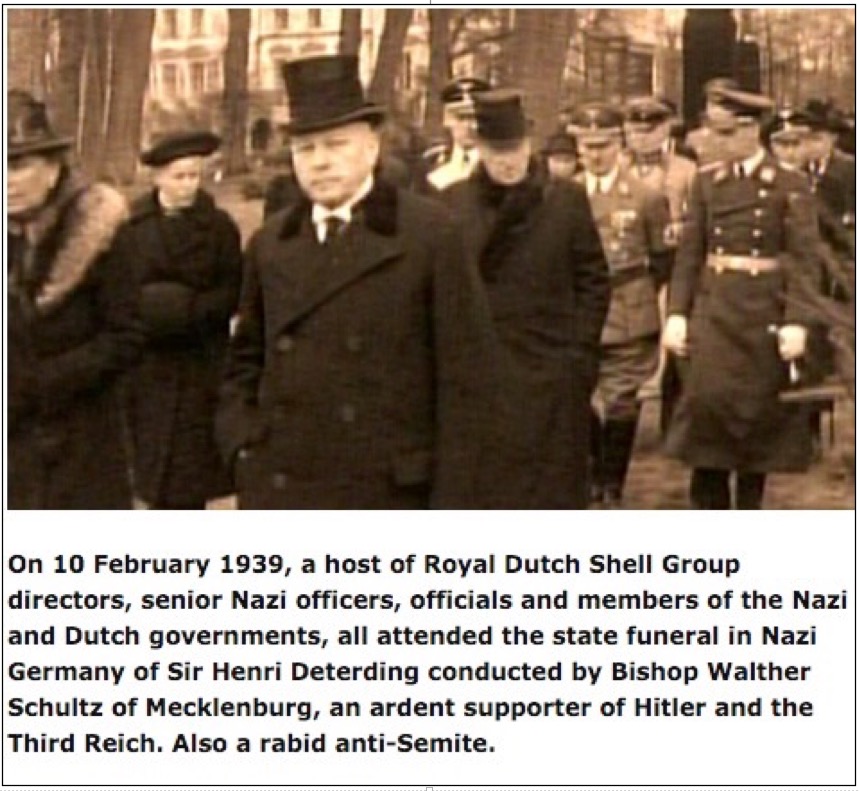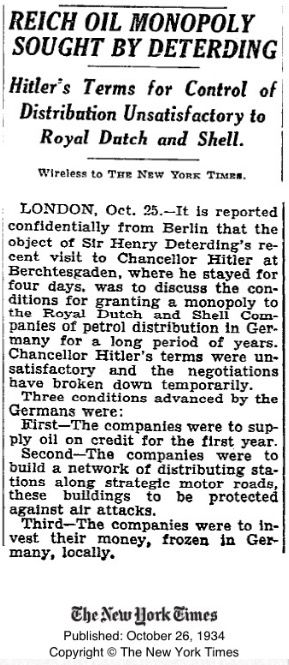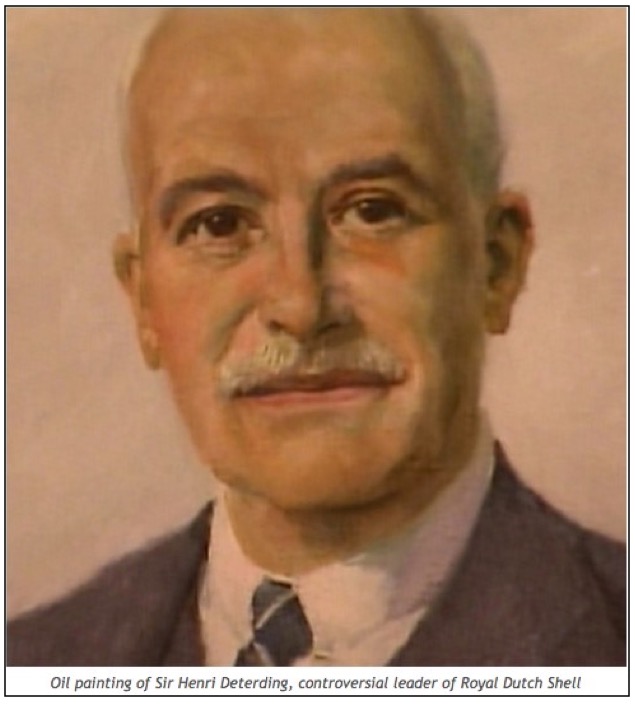In the pre-war years, Royal Dutch Shell adopted anti-Semitic policies within its Germany subsidiary, and subsequently in the Netherlands following occupation by the Nazis. The Swastika flag flew on the classic Dutch facade of Royal Dutch’s head office at 30 Carel van Bylandtlaan in The Hague. Displayed immediately below is a screenshot of the adjacent current HQ of Royal Dutch Shell Plc.
As his infatuation with the Nazis grew, Sir Henri Deterding began making anti-Semitic remarks in his correspondence. See page 481 RDSH V1.
Royal Dutch Shell adopted anti-Semitic policies in Germany and subsequently in the Netherlands, after occupation by the Nazis.
Shell anti-Semitic policies in Germany
The Nazi party had directors on the board of Rhenania-Ossag. They sat alongside Shell Group directors for several years.
On 3 April 1933, Nazi representatives on the Rhenania-Ossag works council demanded the dismissal of all Jewish directors. Outbreaks of violence against Jews had already started in Germany. There were also calls for a nationwide boycott of Jewish businesses.
Although initially trying to downplay the seriousness of events, managers of Rhenania-Ossag decided that it would be prudent to align the company urgently with the policies of the Nazi regime.
In May and June 1933 the board of directors of Rhenania-Ossag was “thoroughly overhauled” with Jewish members removed and one Nazi party member appointed, joining one already in place. See Page 469 RDSH V1.
Resignations of Jewish directors resulted from pressure applied by Nazi members of the Rhenania-Ossag works council. See page 469 RDSH V1.
Direct extracts from the same page:
“In retrospect the remodelling of the senior management to suit the New Order would appear to have happened with undue haste…”
“The far-reaching changes to the Rhenania-Ossag board could not have taken place without the full consent of Central Offices”
“No questions of principle or moral judgements about the Hitler regime appear to have arisen and it bears pointing out that, whereas correspondence shows Group managers quick to identify and condemn Bolshevism, they appear not to have had the same sensitivity to Fascism or Nazism. This blind spot, quite a common affliction in the 1930s, may have impaired their vision when it came to perceiving the intentions of the unfolding Third Reich and the horrendous threat hanging over the jewish employees in the Group’s care. We do not know the Group’s treatment of the staff members concerned, nor their fates.” See page 469 RDSH V1.
The “Central Offices” being a reference to the HQ of Royal Dutch Shell, and the “Group managers”, Group directors representing the Group on the board of Rhenania-Ossag.
Shell anti-Semitic policies in Holland
The Nazis invaded Holland on 10 May 1040.
Hauptmann Eckhardt von Klass, the former research director of Rhenania-Ossag, was appointed in January 1940 by the Nazis as “Verwalter” (administrator) to oversee Rhenania-Ossag, Royal Dutch and the aforementioned Bataafsche, another company within the Royal Dutch Shell Group. See page 78 RDSH V2.
He is said to have forced Bataafsche to comply with the Nazis’ anti-Semitic policy. See RDSH V2 page 82.
There were, in any event, Nazi sympathizers within the Group at central offices in The Hague. See RDSH V2 page 32.
After the war, Royal Dutch dismissed fifty employees for collaboration with the Germans. See RDSH V2 page 82.
Extracts
“In October 1941, the German authorities in the Netherlands issued a decree for the dismissal of Jewish employees from private companies. Philips set up a special department for its Jewish employees in December, hoping to keep them out of harm’s way by offering them work under the company’s protection. Bataafsche responded rather more slowly, in February 1942 sending a circular to its Dutch offices instructing them to have the staff complete an Arierverklaring, a form giving particulars about their descent. This survey resulted in forty people being classified as Jewish under the German laws. At least twenty of them did not survive the war.” See RDSH V2 page 84.
“For everything he did, von Klass remained heavily dependent on a handful of Bataafsche middle managers who sympathized with the Nazis….” See RDSH V2 page 86.
It is shocking to contemplate, but a Royal Dutch Shell group company instructed its employees to declare personal information, which for some, amounted to a death warrant. As is stated above, at least twenty of them did not survive the war.
Undoubtedly there was anti-Semitism within the Royal Dutch Shell Group at that time.
What about after WW2? What about now?
A regular source of Shell insider information asked me if I was aware that “there is one country in the world that Shell will not do business with?”
It was a reference to Israel. Hence the question: Is Royal Dutch Shell STILL anti-Semitic?
I have checked the relevant volumes of “A History of Royal Dutch Shell” from when the State of Israel was created in 1948 onwards. There is no obvious evidence of Shell ever having any business dealings with Israel.
On 1 January 2016, I carried out a search on shell.com. I found no evidence of Shell having any business dealings with Israel and no reference to anti-Semitism in Shell’s General Business Principles.
It seems to be a taboo subject.
I did find this revealing paragraph in the Wikipedia article “Paz Oil Company”:
“Paz was founded in 1922, as Anglo-Asiatic Petroleum. From 1927 it operated as part of Royal Dutch Shell, under the name Shell Palestine. In 1958 Shell withdrew from Israel under economic pressure from Arab countries. The symbol of the company, a yellow triangle, still resembles that of Shell.”
In October 2006, it was reported in an Israeli publication that it has been Shell’s policy to avoid the Israeli market, in which case the insider could be right.
However, the article also said that a Pennzoil deal with Shell could bring Shell into the Israeli market.
Pennzoil, an American oil company, was purchased by Shell in 2002. Pennzoil may now have representation in Israel, but there is no evidence (of which I am aware), that Shell has recommenced trading in Israel under Shell’s name. Apparently the subject remains sensitive.
So, is Royal Dutch Shell STILL anti-Semitic? Or is it simply because doing business with Israel in the name of Royal Dutch Shell would upset the rulers of Saudi Arabia, yet another tyrannical regime in bed with the company?
One country swims in oil; the other doesn’t.
That may explain why Shell has maintained a business relationship with hydrocarbon-rich Arab regimes ever since the creation of Israel.
In April 2013, there was further speculation relevant to this subject in a number of news articles:
Bloomberg: Woodside’s Israel Entry May Prompt Shell to Sell Stake, CBA Says
The Wall Street Journal: Israel Move Could Put Shell’s Woodside Stake In Play
The Algemeiner: Israel Investment Gives Oil Giant Shell Cold Feet
The Jerusalem Post: Report: Shell to dump Australian firm over ties to Israel
Copyright Notice: All rights, including copyright and compilation in the content of shellnazihistory.com web pages authored by John Donovan are owned or controlled for these purposes by him. In accessing the said web pages, you agree that you may only download the content for your own personal non-commercial use. Except where expressly stated otherwise, you are not permitted to copy, broadcast, download, store (in any medium), transmit, show or play in public, adapt or change in any way the content of these web pages for any other purpose whatsoever without the prior written permission of John Donovan via the email address: john@shellnews.net
shellplc.website and its sister non-profit websites royaldutchshellplc.com, royaldutchshellgroup.com, shellenergy.website, shellnazihistory.com, royaldutchshell.website, johndonovan.website, shellnews.net and shell2004.com are owned by John Donovan. There is also a Wikipedia feature.